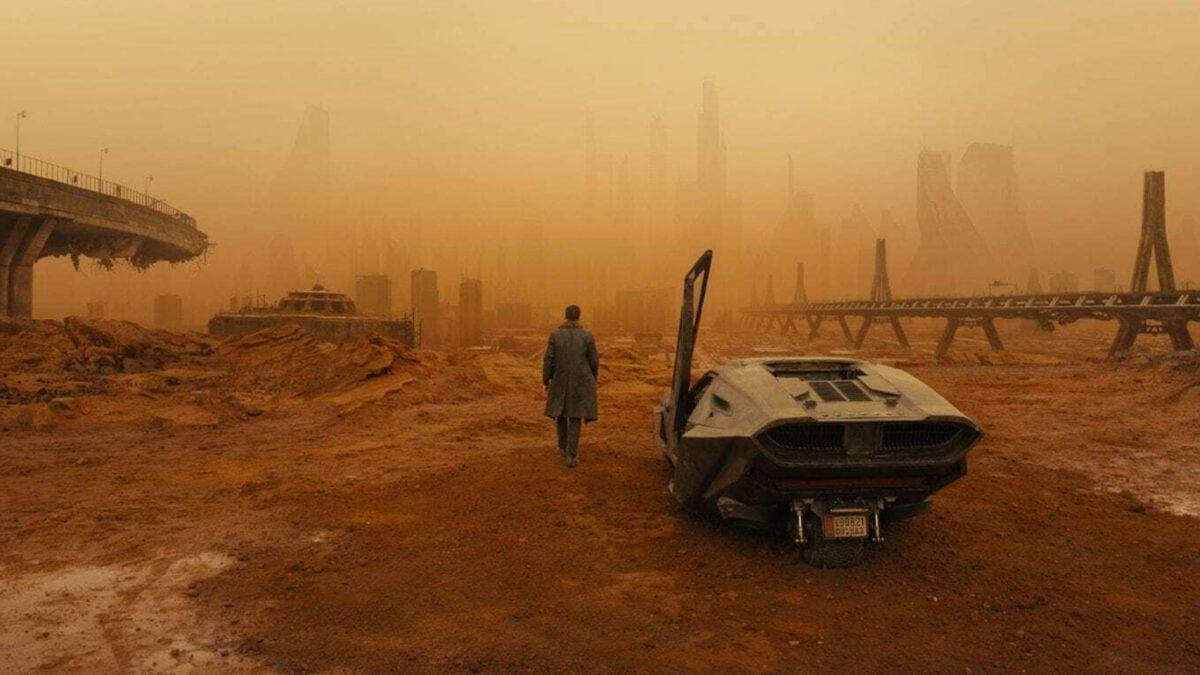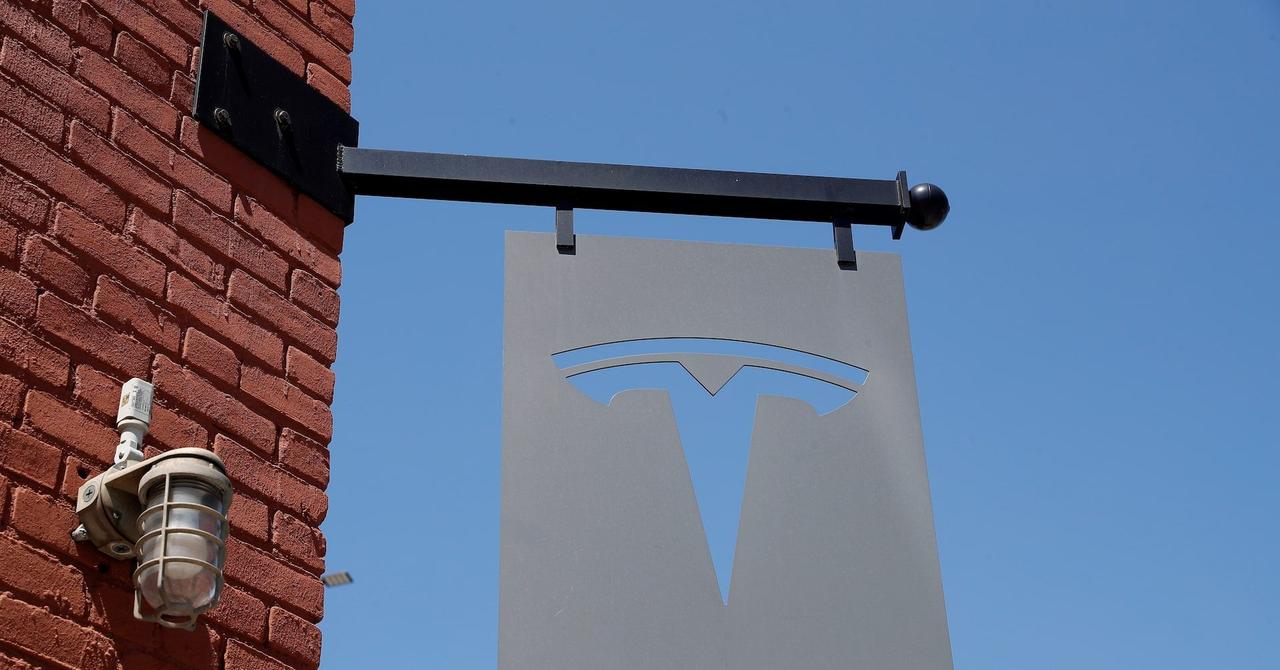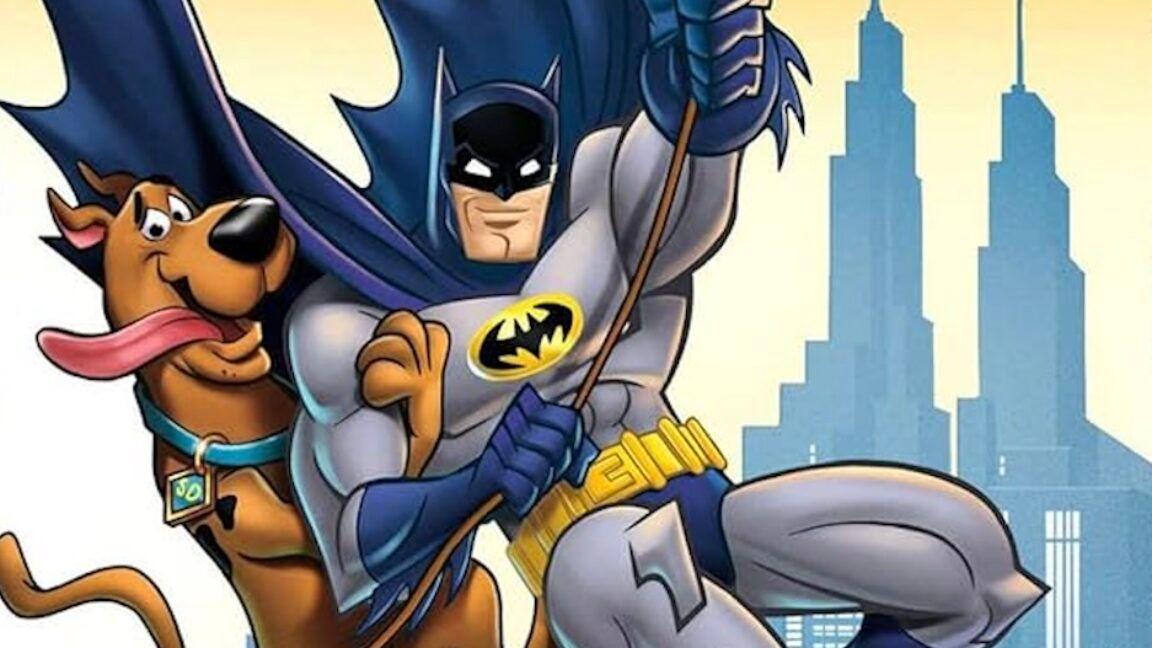Tesla and Warner Bros. Partially Prevail in 'Blade Runner 2049' AI Image Lawsuit
5 Sources
5 Sources
[1]
Tesla, Warner Bros fend off some claims in 'Blade Runner 2049' ad dispute
April 7 (Reuters) - Tesla (TSLA.O), opens new tab and Warner Bros. Discovery (WBD.O), opens new tab won a tentative ruling on Monday dismissing some claims by movie studio Alcon Entertainment over their alleged misuse of imagery from the film "Blade Runner 2049" to promote Tesla's autonomous cybercab. U.S. District Judge George Wu in Los Angeles said before a Monday hearing, opens new tab that he was inclined to dismiss allegations that Tesla and Warner Bros. violated Alcon's rights under U.S. trademark law, while allowing Alcon to continue pressing claims that Tesla infringed its copyright in the movie. Attorneys and spokespeople for Tesla, Warner Bros. and Alcon did not immediately respond to requests for comment on the ruling on Monday. Warner Bros. distributed "Blade Runner 2049," the 2017 sequel to the 1982 cult classic sci-fi movie "Blade Runner." Alcon said it refused a request from Warner Bros. to use images from the film for the unveiling of Tesla's new cybercab last year. Alcon sued Tesla and Warner Bros. in October, alleging Tesla used AI-generated images mimicking the film to promote the cybercab at the unveiling. It accused Tesla and Warner Bros of infringing its copyrights and violating U.S. trademark law by falsely suggesting that Alcon endorsed the event. Wu said in his tentative ruling that he would dismiss Alcon's trademark claims. The judge said Tesla CEO Elon Musk only referenced the original "Blade Runner" at the event and noted that Tesla and Alcon are not competitors. "Tesla and Musk are looking to sell cars," Wu said. "Plaintiff is plainly not in that line of business." Wu also said he would allow Alcon's claim that Tesla misused its copyrighted work to continue. The judge dismissed most of Alcon's claims against Warner Bros. The case is Alcon Entertainment LLC v. Tesla Inc, U.S. District Court for the Central District of California, No. 2:24-cv-09033. For Alcon: Edward Anderson and Regina Yeh of Anderson Yeh For Tesla and Warner Bros: Kristen McCallion, John Goetz, Christopher Marchese, Vivian Cheng and Matthew Colvin of Fish & Richardson Read more: 'Blade Runner 2049' producer sues Tesla, Warner Bros over AI images Reporting by Blake Brittain in Washington Our Standards: The Thomson Reuters Trust Principles., opens new tab Suggested Topics:LitigationManufacturingSustainable & EV Supply ChainEV StrategyProducts Blake Brittain Thomson Reuters Blake Brittain reports on intellectual property law, including patents, trademarks, copyrights and trade secrets, for Reuters Legal. He has previously written for Bloomberg Law and Thomson Reuters Practical Law and practiced as an attorney.
[2]
Blade Runner 2049 AI Lawsuit Rules That Elon Musk's Tesla Can Still Be Sued for Copyright Infringement
Tesla's presentation last year for a Cybercab gave sci-fi dystopia vibes that drew concern from Alcon Entertainment. Things are getting too meta in this dystopian landscape. Blade Runner 2049's production company Alcon Entertainment has sued Tesla and Elon Musk for allegedly feeding stills from the Warner Bros. picture to an AI image generator to create promotional material for the car manufacturer. According to the Hollywood Reporter, Alcon's trademark claim, while dismissed, has prompted a re-examining of the peculiar similarities between Blade Runner 2049 and Tesla's ad campaign that allows smaller cases of copyright infringement to continue against the company. The image in contention is a still of Ryan Gosling's Officer K standing in the orange-hued wasteland expanse next to a futuristic car. The suit from Alcon claims that the still was used to create "unlicensed promotional materials" while including film distributor Warner Bros. Discovery for "facilitating the partnership" in a violation of Alcon Entertainment's trademarks. The judge ruled in favor of Warner Bros. and Tesla, which had partnered up for the robotaxi's unveiling. At the event, Tesla boss Elon Musk debuted an image of his Cybercab displayed in an eerily similar ad that looks like the scene in question from Blade Runner 2049. Tesla denied the use of trademarked materials; Alcon had accused the company of using an AI image generator to strip imagery from the scene from 2049 without using licensed permission. The grounds for the ruling were that Alcon was only working off "information and belief " in this copyright infringement case, according to THR. The technicality may have won the battle, however Alcon revealed in the court case that it had denied Tesla the use of Blade Runner 2049 hours before the presentation in question. The judge ruled, “Given the tight timeframe Musk and Tesla were working with in light of their last-minute requestâ€"and the resulting last-minute denialâ€"to make use of BR2049, it is not at all implausible for Plaintiff to allege on information-and-belief that they made use of an AI image-generator to come up with the finished product." Most of the claims can therefore move forwardâ€"except for one which had initially invoked the Lanham Act (aka the Trademark Act of 1946, which Alcon had claimed Tesla violated through its barring of false association), as Musk only mentioned the film once during the event, but not in a way that implied legitimacy to Alcon's accusations.
[3]
Tesla, Warner Bros. dodge some claims in 'Blade Runner 2049' lawsuit, copyright battle continues
Tesla and Warner Bros. scored a partial legal victory as a federal judge dismissed several claims in a lawsuit filed by Alcon Entertainment, a production company behind the 2017 sci-fi movie Blade Runner 2049, Reuters reports. The lawsuit accused the two companies of using imagery from the film to promote Tesla's autonomous Cybercab vehicle at an event (1) hosted by Tesla CEO Elon Musk at Warner Bros. Discovery (WBD) Studios in Hollywood in October of last year. Recommended Videos U.S. District Judge George Wu indicated he was inclined to dismiss Alcon's allegations that Tesla and Warner Bros. violated trademark law, according to Reuters (2). Specifically, the judge said Musk only referenced the original Blade Runner movie at the event, and noted that Tesla and Alcon are not competitors. "Tesla and Musk are looking to sell cars," Reuters quoted Wu as saying. "Plaintiff is plainly not in that line of business." Wu also dismissed most of Alcon's claims against Warner Bros., the distributor of the Blade Runner franchise. However, the judge allowed Alcon to continue its copyright infringement claims against Tesla for its alleged use of AI-generated images mimicking scenes from Blade Runner 2049 without permission. Alcan says that just hours before the Cybercab event, it had turned down (3) a request from Tesla and WBD to use "an icononic still image" from the movie. In the lawsuit (4), Alcon explained its decision by saying that "any prudent brand considering any Tesla partnership has to take Musk's massively amplified, highly politicized, capricious and arbitrary behavior, which sometimes veers into hate speech, into account." Alcon further said it did not want Blade Runner 2049 "to be affiliated with Musk, Tesla, or any Musk company, for all of these reasons." But according to Alcon, Tesla went ahead with feeding images from Blade Runner 2049 into an AI image generator to yield a still image that appeared on screen for 10 seconds during the Cybercab event. With the image featured in the background, Musk directly referenced Blade Runner. Alcon also said that Musk's reference to Blade Runner 2049 was not a coincidence as the movie features a "strikingly designed, artificially intelligent, fully autonomous car."
[4]
'Blade Runner 2049' vs Elon Musk case set to go ahead
A lawsuit filed by a production company for the film Blade Runner 2049 against Elon Musk's Tesla is set to go ahead. As we reported last year, Alcon Entertainment said in its lawsuit that Musk used AI-generated imagery mirroring scenes from its 2017 sci-fi film while presenting Tesla's new autonomous Robotaxi at a marketing event on 10 October. And the snag is that producers had denied his request to do so. "He did it anyway," the suit alleges, adding that the company did not want to be linked to Musk or his companies. "Any prudent brand considering any Tesla partnership has to take Musk's massively amplified, highly politicised, capricious and arbitrary behaviour, which sometimes veers into hate speech, into account," it added. It also alleged that Warner Bros. Discovery (WBD) facilitated the partnership. Earlier this week, a court pointed to Tesla's attempt to get permission to use Blade Runner 2049 for its event, which was denied just hours before the presentation was set to begin. "Several similarities" between the promotional materials that Tesla used and stills from the movie that were allegedly infringed upon were also highlighted. "Given the tight timeframe Musk and Tesla were working with in light of their last-minute request - and the resulting last-minute denial - to make use of BR2049, it is not at all implausible for the plaintiff to allege on information-and-belief that they made use of an AI image-generator to come up with the finished product," said US District Judge George Wu. Although most copyright claims against Tesla were allowed to proceed, those against WBD were dismissed - except one for contributory infringement, which accused the studio of inducing the alleged misconduct. The court also agreed that the company wasn't responsible for overseeing Tesla's work in relation to the presentation, adding: "There is nothing indicating that Warner had such a supervisory/controlling position or role vis a vis Tesla and Musk."
[5]
Round One of 'Blade Runner 2049' Legal Battle Over AI Images Goes to Warner Bros. and Elon Musk
Mattel Retreats From DEI Disclosures Amid Government Crackdown A federal judge has narrowed the scope of a lawsuit from a production company for Blade Runner 2049 accusing Tesla of feeding images from the movie into an artificial intelligence image generator to create unlicensed promotional materials and Warner Bros. Discovery of facilitating the partnership. U.S. District Judge George Wu on Monday dismissed allegations that Alcon Entertainment's trademarks were violated while allowing some copyright claims to proceed. Tesla's partnership with WBD to promote its robotaxi at a glitzy unveiling, which was done from a studio lot, last year sparked the lawsuit. At the presentation, Elon Musk reached the stage in what he called a "cybercab" before showing an image of a male figure wearing a trench coat who's surveying the abandoned ruins of a city bathed in a misty, orange light. Alcon alleged that the image was intended to be understood as an actual still from Blade Runner 2049's sequence of Ryan Gosling's character exploring a ruined Las Vegas. Among the novel questions the case asks is whether the creation of a visual by an AI image generator by copying a portion of a copyrighted work without a license constitutes copyright infringement. Tesla argued that the claim shouldn't be advanced because Alcon's allegations are only based "on information and belief." In Monday's order, the court said that it'd be premature to dismiss the claim. It pointed to Tesla's attempt to get permission to use Blade Runner 2049 for its event, which was denied just hours before the presentation was set to begin, as well as "several similarities" between the promotional materials that Tesla used and stills from the movie that were allegedly infringed upon. "Given the tight timeframe Musk and Tesla were working with in light of their last-minute request - and the resulting last-minute denial - to make use of BR2049, it is not at all implausible for Plaintiff to allege on information-and-belief that they made use of an AI image-generator to come up with the finished product," Wu wrote. While most copyright claims against Tesla were allowed to proceed, those against WBD were dismissed except one for contributory infringement, which accuses the studio of inducing the alleged misconduct. The court agreed with the company that wasn't responsible for overseeing Tesla's work in relation to the presentation. "There is nothing indicating that Warner had such a supervisory/controlling position or role vis a vis Tesla and Musk," stated the order. And in a win for Tesla and WBD, the court dismissed a claim for an alleged violation of the Lanham Act, a federal trademark law that bars false association. Although Musk said "Blade Runner" during his presentation, he didn't mislead viewers as to the source of the movie, according to the ruling. Wu also stressed that Tesla and Alcon aren't competitors. "Tesla and Musk are looking to sell cars," the judge wrote. "Plaintiff is plainly not in that line of business." The court said it'd likely allow Alcon to fix its copyright claims but not those alleging violations of the Lanham Act, finding that such "amendments would be futile."
Share
Share
Copy Link
A federal judge has dismissed some claims in a lawsuit against Tesla and Warner Bros. over alleged misuse of 'Blade Runner 2049' imagery, while allowing copyright infringement claims to proceed.

Legal Battle Over AI-Generated Images
In a recent legal development, U.S. District Judge George Wu has issued a tentative ruling in the lawsuit filed by Alcon Entertainment against Tesla and Warner Bros. Discovery. The case revolves around the alleged misuse of imagery from the film "Blade Runner 2049" to promote Tesla's autonomous cybercab
1
2
.Dismissed Claims and Continuing Copyright Battle
Judge Wu dismissed several claims in the lawsuit, including allegations that Tesla and Warner Bros. violated Alcon's rights under U.S. trademark law. The judge noted that Tesla CEO Elon Musk only referenced the original "Blade Runner" film during the event and emphasized that Tesla and Alcon are not competitors in the same industry
1
.However, the court allowed Alcon to continue pressing claims that Tesla infringed its copyright in the movie. The judge stated it was "not at all implausible" that Tesla may have used an AI image generator to create promotional materials similar to scenes from "Blade Runner 2049"
3
4
.Background of the Dispute
The controversy stems from Tesla's unveiling of its new cybercab last year. Alcon alleges that Tesla used AI-generated images mimicking the film to promote the vehicle after Alcon had refused a request from Warner Bros. to use images from the film for the event
1
2
.Alcon's lawsuit claims that Tesla fed stills from "Blade Runner 2049" into an AI image generator to create unlicensed promotional materials. The production company specifically pointed to an image of a male figure in a trench coat surveying a ruined city, which they argue was intended to evoke Ryan Gosling's character from the film
5
.Implications for AI and Copyright
This case raises novel questions about whether the creation of visuals by AI image generators, using portions of copyrighted work without a license, constitutes copyright infringement. The court's decision to allow the copyright claims to proceed suggests that this issue will be further explored as the case continues
5
.Related Stories
Warner Bros.' Role and Dismissed Claims
While most claims against Warner Bros. were dismissed, the court allowed one claim for contributory infringement to proceed. This claim accuses the studio of inducing the alleged misconduct. However, the judge agreed that Warner Bros. was not responsible for overseeing Tesla's work related to the presentation
4
5
.Broader Context and Implications
This legal battle highlights the growing intersection of AI technology, intellectual property rights, and marketing strategies in the tech and entertainment industries. It also underscores the potential risks and legal complexities that arise when companies leverage cultural properties and advanced technologies in their promotional efforts
2
3
4
.As the case moves forward, it will likely set important precedents for how AI-generated content is treated under copyright law, potentially influencing future collaborations between tech companies and the entertainment industry
5
.References
Summarized by
Navi
[3]
Related Stories
Warner Bros. Gains Ground in 'Blade Runner 2049' AI Image Lawsuit Against Tesla
16 Sept 2025•Technology

Tesla and Elon Musk Sued Over AI-Generated 'Blade Runner 2049' Image in Robotaxi Event
22 Oct 2024•Technology

Tesla Sues Former Engineer for Alleged Trade Secret Theft in AI Robotics Project
13 Jun 2025•Technology

Recent Highlights
1
ByteDance's Seedance 2.0 AI video generator triggers copyright infringement battle with Hollywood
Policy and Regulation

2
Demis Hassabis predicts AGI in 5-8 years, sees new golden era transforming medicine and science
Technology

3
Nvidia and Meta forge massive chip deal as computing power demands reshape AI infrastructure
Technology





